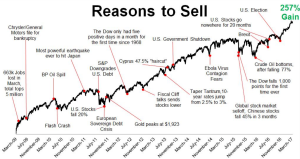Market Review and Outlook
By: Karen Oeser, CFA®, CFEI®
Last week, the markets fell across the board, with the S&P 500 losing 2.1%, on fears that the economy might be headed into a recession. The manufacturing sector reported its fourth consecutive contraction, while the labor market demonstrated unexpected weakness, adding only 114,000 jobs, rather than the 176,000 jobs economists expected. A surge in new entrants into the labor force, rather than job losses, contributed to last week’s outcome.
The broader market was further impacted by a global sell-off triggered by concerns over contracting labor markets worldwide. It is important to note that the service sector, which comprises 77.6% of the U.S. economy, expanded by 2.6% last month, offsetting some of the manufacturing weakness.
In addition, the technology sector has been struggling for the past two weeks because investors are selling off their stocks to lock in their gains after seeing higher-than-expected spending on AI. While this has led to short-term volatility, we maintain our long-term bullish outlook on the sector as we believe AI’s transformative potential remains a key driver for economic growth.
“The only problem with market timing is getting the timing right.” – Peter Lynch
Where will the market go next? Up, down, or sideways? It’s a question on everyone’s mind, but the truth is, nobody knows. If they did, they’d be exceptionally wealthy. Yet, our inherent desire for certainty drives us to seek answers in an unpredictable world. It’s a natural human response that provides a sense of control and reduces anxiety.
Consider the experience of waiting for medical test results. Many find the uncertainty more distressing than the eventual diagnosis. Once the results are in, a plan can be formed, alleviating the burden of unknown possibilities.
Investing is no different. Uncertainty in the market can be a significant source of stress. Imagine knowing with certainty that a bear market would start next month, last 22 months and result in a 34% decline. While unpleasant, you would know what to expect which naturally leads to reduced anxiety.
Unfortunately, the reality is far less predictable. Investors often fear that every minor market dip signals a major downturn, which is rarely the case. This fear can lead to impulsive decisions, such as selling everything.
While past performance is no guarantee of future results, historical charts like the one below illustrate the potential pitfalls of selling an entire portfolio. Such a drastic action can be detrimental to long-term investment success. Any of the dips highlighted below may have felt to an investor like the right time to sell, but each of those sales would have resulted in the missed opportunity to realize the subsequent gain.

Source: “Gradual Improvements Go Unnoticed” by Michael Batnick
The good news in a world with little control is that you can gain control by letting your plan, not your gut, be your guide. By prioritizing your investment plan over impulsive decisions, you harness the potential of the growth you can realize when the market recovers.
Despite my long-term optimism, I also believe smart planning involves preparing for difficult market periods. A well-structured contingency plan is your safety net. As the saying goes, “If you stay ready, you never have to get ready.” “Staying ready” varies for each investor, but ensuring that your near-term expenses are covered and not subject to market volatility is crucial. By safeguarding your short-term financial needs, you can approach market challenges with composure and make sound decisions. Remember, preparedness breeds confidence. Avoiding panic is crucial for achieving your financial goals, which is the ultimate aim of our work together.
If you have any questions or want to review your plan, please don’t hesitate to reach out.
And as always, stay the course!


